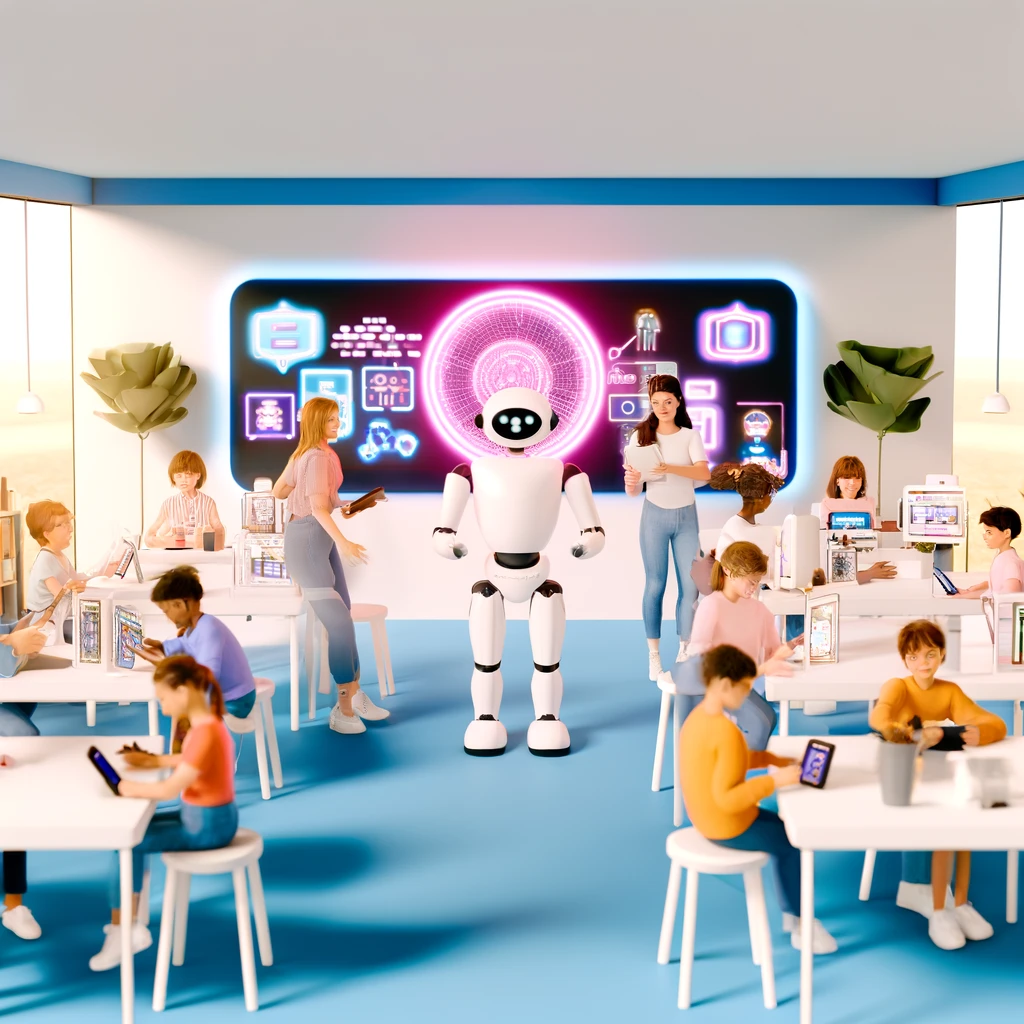
In the rapidly evolving landscape of technology, Artificial Intelligence (AI) has emerged as a revolutionary force, shaping numerous industries with its innovative capabilities. Among these, the education sector stands out as a primary beneficiary of AI’s transformative power. As we dive into the world of AI in education, let’s explore how it is changing the game for students, educators, and institutions alike.
The AI Revolution in the Classroom
Imagine a classroom where learning is not only tailored to each student’s needs but also proactive in identifying and addressing their challenges. AI makes this possible through personalized learning algorithms that adapt to the pace and style of every learner. This means students can master concepts at their own speed, guided by intelligent systems that suggest resources based on their learning history and preferences.
AI-driven platforms are also breaking down barriers in education, offering language translation services and accessible learning materials for students with disabilities. These advancements ensure that education is inclusive, engaging, and effective for everyone.
Empowering Educators with AI
Teachers are the backbone of education, and AI is here to support them, not replace them. By automating administrative tasks, AI allows educators to focus more on teaching and less on paperwork. Grading assignments, managing classroom activities, and tracking student progress can now be handled efficiently by AI systems, freeing up valuable time for teachers to engage with their students on a deeper level.
Furthermore, AI can assist in developing curricula that are dynamic and up-to-date with the latest knowledge and skills required in the real world. Educators can use AI to access insights on emerging trends, enabling them to prepare students for future challenges.
Transforming Learning Environments
The integration of AI in education extends beyond the classroom. Virtual labs, AI tutors, and educational games create immersive learning experiences that stimulate curiosity and enhance understanding. These innovative tools make learning fun and engaging, encouraging students to explore new concepts and apply their knowledge in practical scenarios.
AI is also facilitating collaborative learning by connecting students from different parts of the world. Through AI-enabled platforms, learners can work on projects, share ideas, and gain global perspectives, preparing them for a connected and digital future.
Navigating the Challenges
While the benefits of AI in education are significant, there are challenges to address, such as data privacy, ethical considerations, and ensuring equitable access to technology. It is crucial for educational institutions, policymakers, and tech developers to work together to create a safe and inclusive environment where AI can thrive as a tool for enhancing education.
Questions and Answers
Q: Can AI replace teachers in the classroom? A: No, AI is designed to support and enhance the work of teachers, not replace them. It provides tools that can help teachers manage their workload more efficiently and offer personalized learning experiences for students.
Q: How does AI personalize learning? A: AI personalizes learning by analyzing data on students’ learning behaviors, preferences, and performance. It then uses this information to provide customized resources and activities that match each student’s individual learning needs.
Q: Are there any privacy concerns with using AI in education? A: Yes, integrating AI into educational systems raises important privacy concerns. It is essential to ensure that student data is securely protected and that AI systems are transparent and accountable in their operations.
Q: Can AI help students with special needs? A: Absolutely! AI can offer personalized learning experiences and accessible content for students with disabilities, making education more inclusive and accommodating for all learners.
As we continue to explore the potential of AI in education, it’s clear that this technology holds the key to a future where learning is personalized, accessible, and engaging. By embracing AI, we can create educational experiences that inspire and empower the next generation of learners to achieve their full potential.